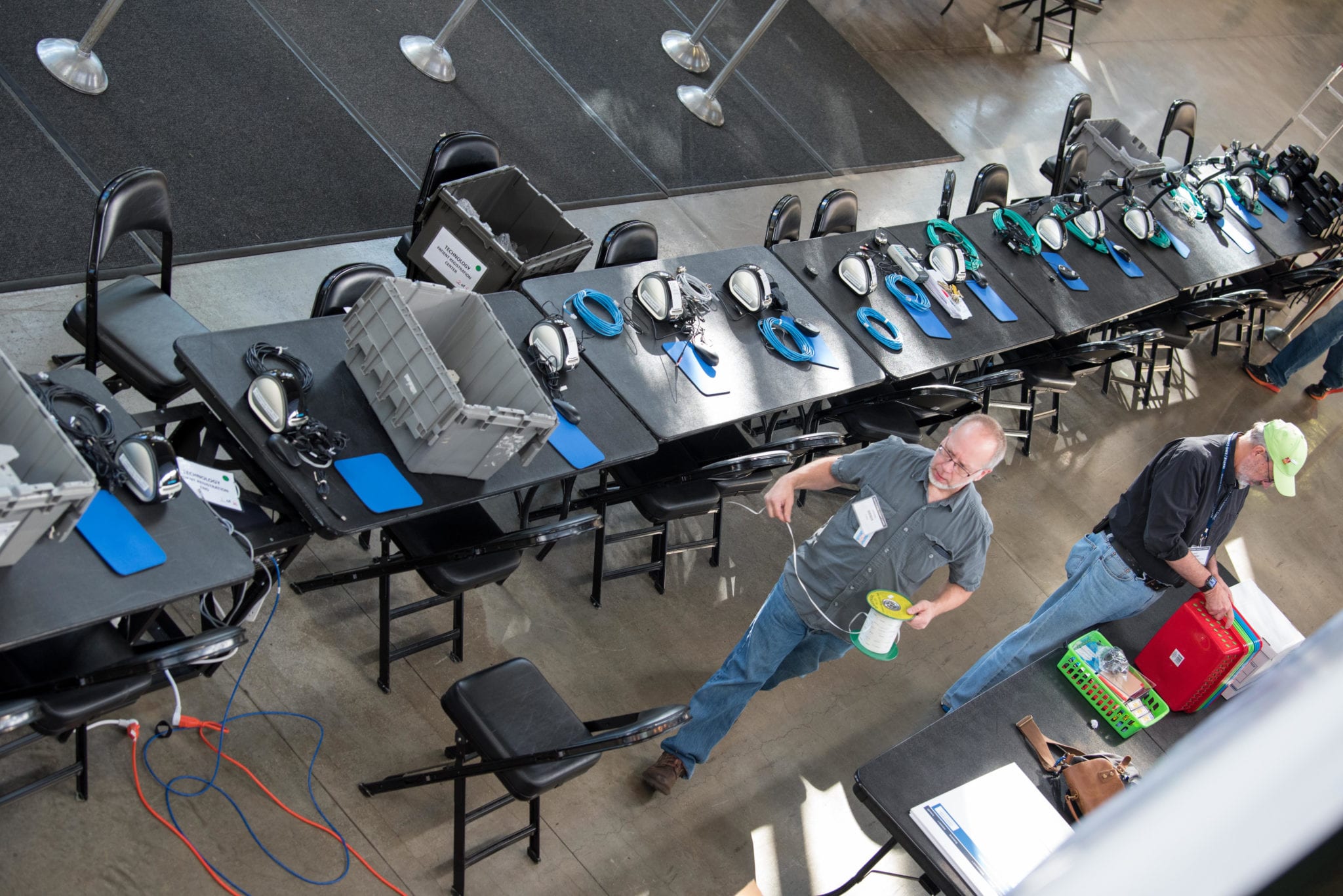
Before the thousands of feet of wires are laid, before the laptops and PC’s are fired up, and before volunteers greet the thousands of people who will be given free medical and dental care, a small Seattle IT’s team has planned for months to bring reliable technology to Seattle’s KeyArena. The 5th annual Seattle/King County Health Clinic kicks off Thursday, September 20. For Seattle IT’s Stephen Burke, Kevin Tom, Geramy Wong, and Ivan Balbuena, the planning started in January.
Each year, the mission is the same: Create a dependable network of devices and internet connections that will be user-friendly for nurses, doctors, and other volunteers that staff the clinic.
“These are non-technical people,” said former End User Device Support Supervisor Eric Bell who has been part of the technology team in part years. “They don’t have time to troubleshoot through technical issues or to learn new systems. We have to simplify it for them.”
The clinic provides a full range of free dental, vision, and medical care to underserved and vulnerable populations in the region. The line starts forming the night before to be treated at this clinic each year. In 2017, more than 4,000 patients received just over $3.7 million in services. The clinic serves a racially diverse and economically disadvantaged patient population. For Seattle IT staff, who are on location for the entire four-day clinic, it feels like more than just a day’s work.
“It almost makes you want to cry to watch how important it is to these patients to get care,” Balbuena who is the end user device support manager. “For those who do not speak fluent English, being able to talk to someone in their own language is a big deal.”
The clinic provides in person and virtual interpreters. Last year, 51 primary languages were spoken.
The team is taking a new challenge at this year’s clinic. A new program will be used for dental x-ray machines. Seattle IT staff will be ready to support the new technology.
“It’s amazing how it all comes together each year,” said Bell. “Everybody is running around and busy and they all have great attitudes. All the volunteers are just happy to be part of the team that makes the clinic happen.”
Seattle IT provides 45 laptops and 25 PCs to the clinic. The team also builds the extensive internet network, including all the wiring, and connects all other technology devices like printers and medical equipment. Between planning, setup, and staffing, the team spends an estimated 500 hours on the clinic.
It’s a small but vital contribution to this great cause.


